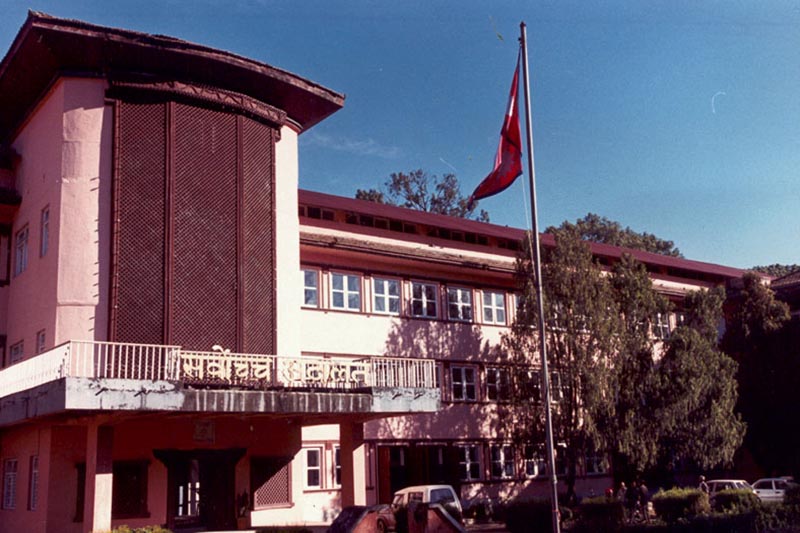Nomination of Supreme Court justices draws flak for not being inclusive
Kathmandu, April 3
Nomination of five Supreme court justices made by the Judicial Council yesterday has come under fire from jurists and political leaders for not ensuring inclusion.
Parliamentary Hearing Committee Chair Laxman Lal Karna, who is also a senior advocate, said the Judicial Council’s decision to nominate SC justices — Prakash Kumar Dhungana, Sushma Lata Mathema, Hari Prasad Phuyal, Kumar Regmi and Manoj Kumar Sharma — from only Pahadi community was a violation of the Judicial Council Act that ensured proportional inclusion in the appointment of judges. He added that there was no nominee from Madhesi, Tharu and Muslim communities.
Senior Advocate Mithilesh Kumar Singh said the JC’s decision to nominate five justices ignoring the Madhesi community was a violation of the constitutional provision that guaranteed proportional inclusion in state organs.
“In the past, the JC always followed the tradition of recommending at least 25 per cent Madhesis in the appointment of SC justices,” he said. He added that Anil Kumar Sinha was the only Madhesi justice in the SC.
Singh said if the JC did not find suitable SC justice candidates from among career judges, it should have opted for nominating lawyers. Non-inclusion of marginalised communities in the JC recommendation is a serious matter also because the Federal Socialist Forum-Nepal that fought for empowerment of marginalised communities is a partner in the Nepal Communist Party (NCP)-led coalition government, Singh added.
General Secretary of FSF-N Ram Sahay Yadav said the government continued to show its discriminatory approach towards marginalised communities and his party would review its partnership with the NCP if it continued to ignore the concerns of the marginalised communities.
FSF-N lawmaker Sarita Giri said the JC decision showed that ruling elites were not treating Madhesis, Tharus and Muslims as equal citizens.
Former president of Nepal Bar Association Shambhu Thapa boycotted the judges’ conference here today to protest ‘malicious recommendation’ of judges for the Supreme Court and high courts. Thapa told THT that some nominees lacked experience and ability to serve as judges.
“If these inefficient people become judges, they cannot adjudicate cases and service seekers won’t get justice,” Thapa alleged.






